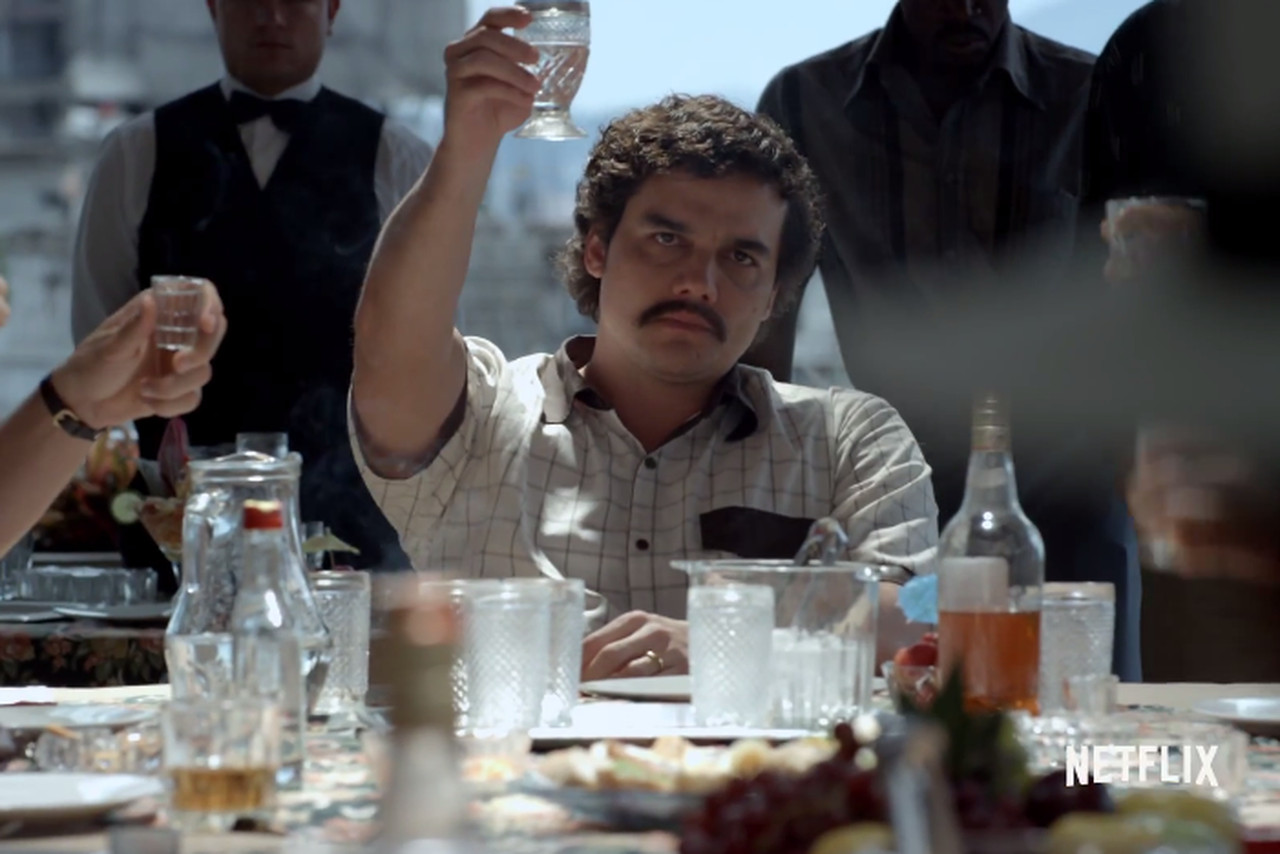I’ve recently watched a couple episodes of “Narcos” which is a considerably popular show on Netflix. It’s based on the very well-known drug cartel and trade in Colombia in the late 1900s. A lot of the show surrounds one of the most famous drug lords: Pablo Escobar. It includes many real videos, photos, and evidence that was found during that time. The show captures a lot of the tragic and horrific events that took place surrounding drug smuggling and revealed a lot of the corruption in Colombia at the time. The most recent episode I watched had a scene where Escobar was running for a congressman of Colombia, but the prime minister exposed his drug stealing in front of the entire senate and HOR. An epic but embarrassing moment for Escobar. Needless to say, the prime minister was shot to death in his car a few days later.
The show begins with a DEA Agent named Steve and his partner Pena. They’re very aware of the drug smuggling businesses that Pablo and his ring were running, and they set out to arrest him. Throughout the show, it’s revealed how people were controlled by addiction, money, and power. Pablo and his gang of drug lords were constantly using their money, drugs, and position to manipulate and torture the people around them. All for the sake of trying to become richer. For example, in episode four (spoiler alert), Steve and Pena had finally managed to get evidence of Pablo’s crimes on paper. They had mounds and mounds of paper trails and evidence from Escobar’s accountant relating to his transactions and selling and it was all stored in a room in the Supreme Court of Colombia. Pablo made a deal with a communist group, hiring them to attack the court and they burned all the evidence. It’s crazy because some of the it just showed how reckless and how much power Escobar had. Regardless of all the people chasing after him, he continued to show no mercy and continued to kill everyone in his way. Throughout the show, since he was so rich, he was paying people off left and right. It shows the harsh reality of what money can do for the bad guys.
Generally speaking, the show itself is a bit explicit. A lot of the show is actually in spanish because it highlights the interactions of Escobar with his friends and the people around him which is good in terms of a different perspective. I’d definitely recommend it for someone who is looking for a good history lesson that’s a little more exciting. The dramatization enhances the horrid drug cartel in Colombia but it definitely depicts accurately a lot of the gruesome things that took place behind the scenes.

